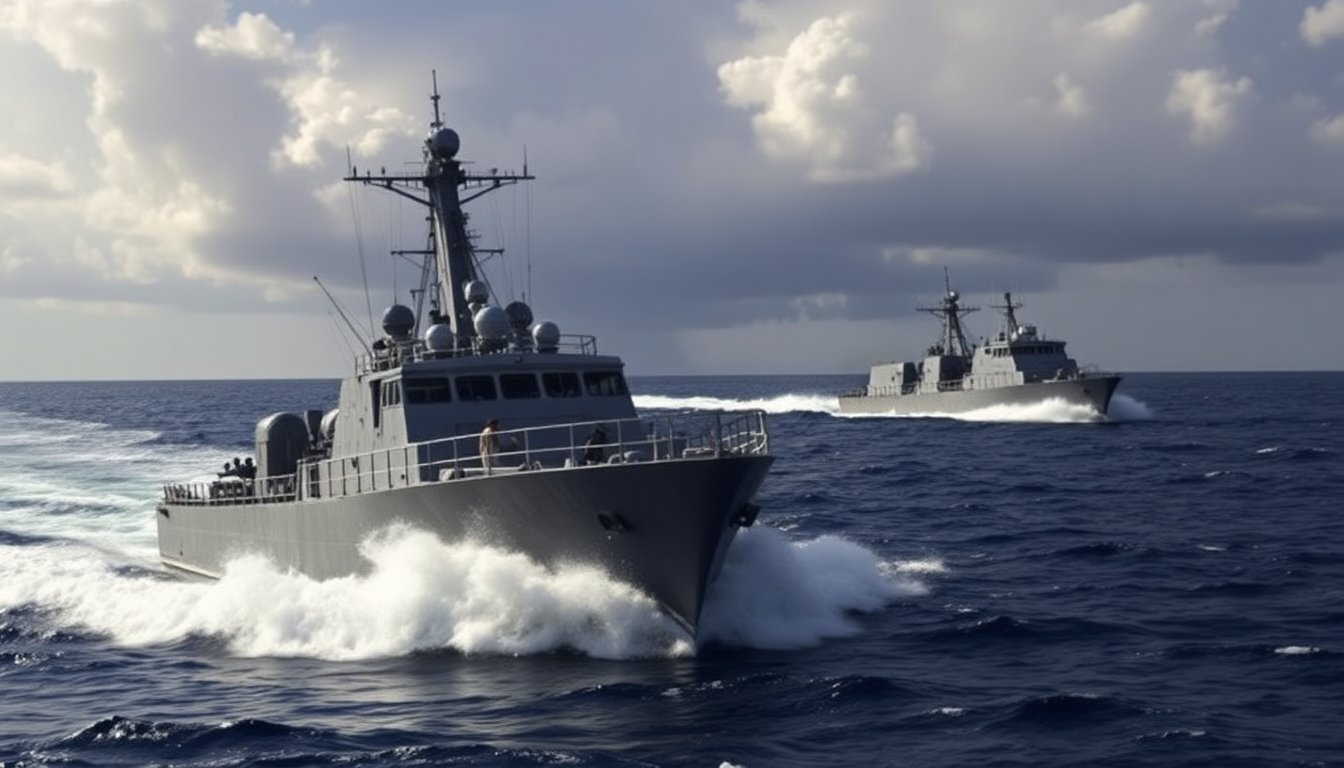Table of Contents
In a notable escalation of military operations, the U.S. Department of Defense has confirmed a recent strike on a vessel linked to drug trafficking in Venezuelan waters. This operation marks the tenth since the campaign began. Defense Secretary Pete Hegseth reported the deaths of six individuals during the attack. The ongoing offensive targets the infamous Venezuelan gang Tren de Aragua, raising important questions about the implications for international law and regional stability in the Caribbean.
Increased military presence in Venezuela
The U.S. military’s recent activities in Venezuela have intensified significantly. The frequency of strikes has escalated from one attack every few weeks to numerous operations within a short span. This surge has resulted in at least 43 fatalities. The latest strikes occurred in the eastern Pacific, indicating a geographic expansion of military engagement.
Visual evidence of strikes
A brief black-and-white video circulating on social media shows the moment of one such strike. It depicts a small boat appearing stationary on the water before being hit by a projectile. The graphic nature of this footage underscores the severity of military actions and raises concerns about the potential impact on innocent bystanders caught in the conflict.
Political ramifications and public discourse
This military initiative has generated significant attention and criticism on both domestic and international fronts. President Donald Trump has characterized the fight against drug cartels as an armed conflict, likening these organizations to terrorist groups such as ISIS. His administration has asserted that individuals involved in drug trafficking will face military consequences similar to those associated with international terrorism.
Legal and ethical concerns
The legality of recent military strikes has come under scrutiny. Experts from the United Nations have raised alarms, asserting that these actions in international waters could constitute extrajudicial executions and infringe upon Venezuela’s sovereignty. The international community is increasingly aware of the potential risks associated with these operations, which some argue may exacerbate the already precarious situation in the Caribbean.
Moreover, questions surrounding the identities of those targeted have sparked ethical debates. Reports suggest that some individuals affected by these strikes may not have had connections to drug trafficking, leading families in Colombia and Trinidad and Tobago to mourn the loss of their relatives. As these strikes persist, there is an urgent demand for transparency and accountability in military engagements.
Military build-up and strategic implications
The United States is increasing its airstrikes and enhancing its naval presence in the Caribbean. The deployment of the USS Gerald R. Ford, the world’s largest aircraft carrier, marks a significant strategic escalation aimed at dismantling drug trafficking networks. This strike group will join several other naval vessels already operating in the region, boosting the U.S. military’s capacity to counter illicit activities.
While the Trump administration asserts that these military actions focus solely on combating drug trafficking, speculation continues regarding potential objectives beyond the drug war. Senior officials have discussed possible military options that could further destabilize the Maduro regime, raising concerns about a more extensive military intervention.
International relations and responses
As the United States continues its military campaign, leaders across Latin America have largely criticized the actions. Countries including Brazil, Colombia, and Mexico have openly expressed their dissatisfaction, highlighting the need to respect national sovereignty. In contrast, the Canadian government has chosen to remain silent on the issue, indicating a cautious stance amid the ongoing developments.
Politically, U.S. lawmakers are split on the issue. Many Democrats have voiced concerns about insufficient information regarding military operations, while only a handful of Republicans share similar worries. Recently, the Senate voted against a resolution that would have required presidential authorization for future military actions, thereby granting the executive branch more latitude to pursue its military objectives.
The ongoing situation represents a complex blend of military strategy, legal issues, and international diplomacy. As the United States navigates this challenging landscape, the consequences of its actions are likely to impact the region for an extended period.


